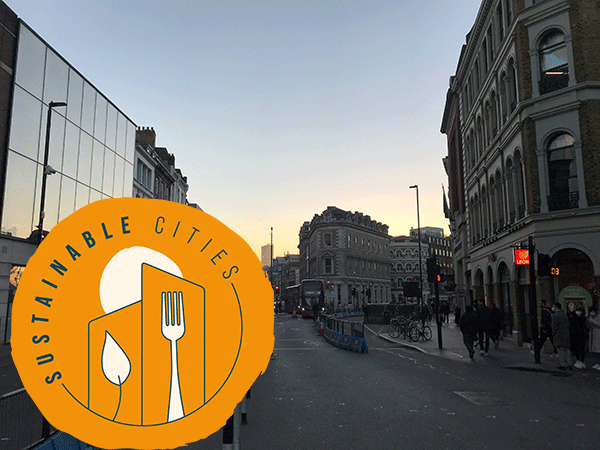![]() This article is part of a new series by Wicked Leeks, Sustainable Cities, exploring what sustainable food means to those living in the city.
This article is part of a new series by Wicked Leeks, Sustainable Cities, exploring what sustainable food means to those living in the city.
Connecting people who live rurally and in cities better could help move towards a sustainable food system through understanding different perspectives and experiences of food and farming.
Understanding the experience of farm workers, farmers and food producers can help urban consumers understand things like food prices and seasonality.
Meanwhile understanding issues around access to land and inequality that have shaped the countryside and land ownership are steps towards creating a more inclusive and sustainable food system.
As such, empathy between urban and rural communities must be part of that transition, according to Kim Graham, research coordinator at Shared Assets, a social enterprise that builds relationships between people and the land.
“How can we make the relationships between the people feeding the city more vivid?” she asked, speaking on a panel at the Oxford Real Farming Conference.
“What would it look like if migrant horticulture workers were connected to the urban people who buy that sort of food? What would it mean for those workers to have meaningful work and good and healthy lives, and to have relationships with the people who rely on that cheap food?”

Sinead Fenton, agroecological farmer at Aweside Farm, moved from the city to the countryside to farm, obtaining land with help from the Ecological Land Cooperative.
She asked: “Where are the opportunities for the rural and urban communities to come together?”
“We’re not just talking about the physical but also about the cultural, political, generational, racial, accessibility, and class divide,” said Fenton. “A lot of this is entrenched by history that goes back hundreds of years.”
She described her own experience of relocating to the countryside to farm as a cultural shock: “I had no sense of connection and deep sense of un-belonging, I was worried that I was too different, that no one looks like me. I asked myself how can I feel comfortable with these people?”
To help others overcome this sense of urban disconnect with the land, Fenton is welcoming people onto her own farm.
“We’re trying to create a safe space for people to break down barriers for feeling like they don’t belong on the land,” she said. “We want people to experience that sense of healing and restoration from nature.”
She suggested one way to bridge the gap between rural and urban communities was through the shared and universal experience of enjoying food and nature.
“What’s the commonality, where do we get those feelings from? It’s from nature and food. There’s nothing like food to bring us together. Let’s use nature to restore ourselves.”
Graham echoed this sentiment: “Food is a great way to engage and talk to people. Everyone eats, and with covid, food is at the front of everyone’s mind.
Understanding who feeds the cities can develop a sense of appreciation for farmers and the food they produce, something that was decisive in the victory of the Indian farmers’ protest defying legislation that would enable a corporate takeover of their food system.
“The support from urban populations with the farmers who had come to the city to protest was key to the success,” Graham explained. “It was about making the fights and the issues that the farmers were facing, everyone’s issues because they were the people that feed the cities.”













Whose responsibility do you think it lies with to promote engagement between urban and rural communities?
Good question – there are many organisations like Shared Assets mentioned in the article who certainly promote this engagement. I don’t know if it’s anyone’s responsibility in particular per se, but there’s definitely a need for it. Where do you think it lies?
I guess if farmers want people to value their produce and services, then they have a certain responsibility to communicate that and engage with the people who buy those products. Farmers should tell their stories to citizens to help them understand their struggles – bizarrely Jeremy Clarkson has been the most effective person yet to do this.
I think storytelling is a really key part of promoting engagement between rural and urban communities, and that includes not only farmers, but people in the city, those struggling with food poverty, and people like Sinead who wanted to be a farmer but encountered many hurdles on her journey to becoming one.
The media have a part to play in telling these stories of those who don’t have the platform and challenging dominant narratives that we have.
I was talking to a farmer about this question this morning, and he said that everyone stays in their silos and worries about their own world rather than trying to understand the situations of others. But if we want to change our own part of the system, we need to understand how it interconnects with others.